One of the nation’s top aviation programs, Middle Tennessee State University’s Aerospace Department continues to experience amazing growth.
Retirements within the industry and other factors heighten the interest in pursuing aerospace degrees in six specialized concentrations, including the extremely popular professional pilot track.
Established in 1942, Aerospace remains a signature department at MTSU has grown into one of the most respected programs in the country. Twenty full-time faculty members, 100-plus flight instructors at the Flight Operations Center and more than 1,200 majors place it among the largest of the nation’s collegiate aviation programs.
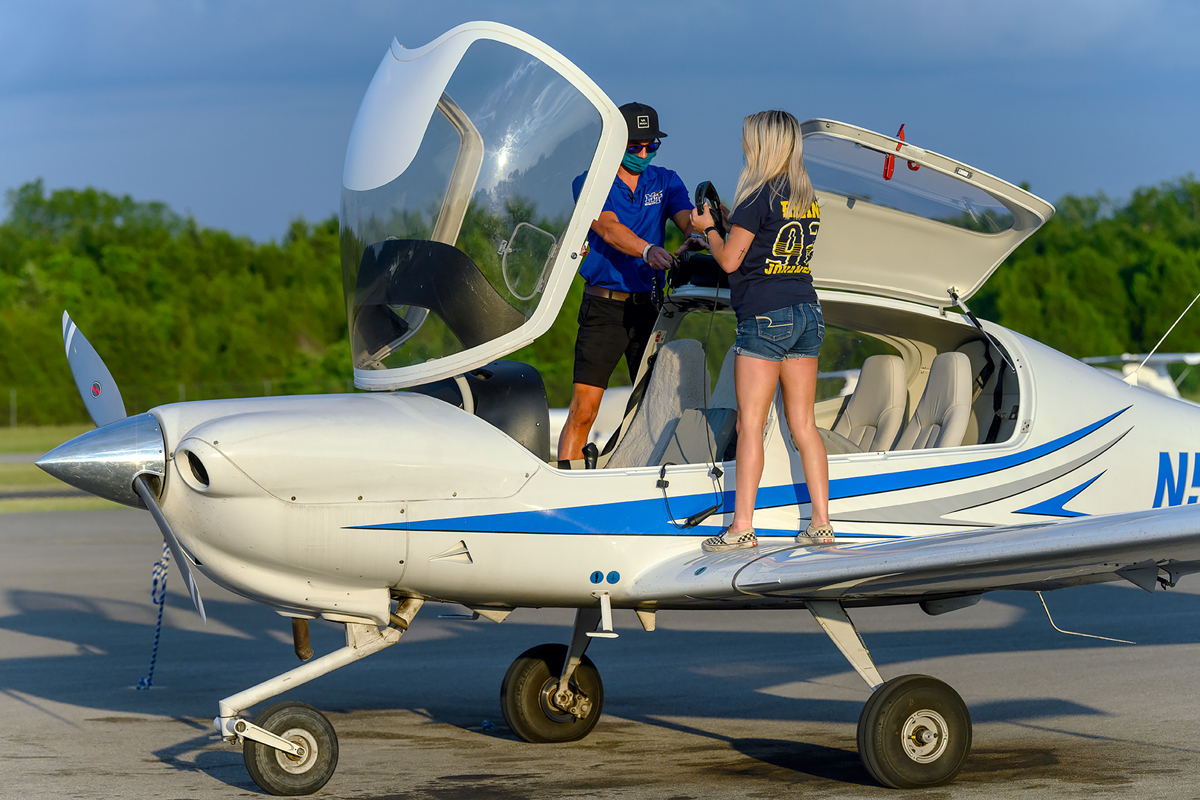
MTSU flight instructors and aerospace students perform maintenance and check off their to-do list after flying a new Diamond Aircraft back to Murfreesboro Airport in this June 2020 photo. Aerospace is experiencing amazing growth in recent years.(MTSU file photo by J. Intintoli)
Aerospace’s concentrations — aviation management, aerospace technology, flight dispatch, maintenance management, pro pilot and unmanned aircraft systems operations — and master’s degree program in aeronautical science and a variety of concentrations has attracted students from 32 states and 16 foreign countries to study here. Aerospace graduates hold professional positions with companies throughout the U.S. and internationally.
New aerospace Chair Chaminda Prelis and College of Basic and Applied Sciences Interim Dean Greg Van Patten discussed the tremendous rise in growth in a special edition of “StayOnCourse” for MTSU’s “Out of the Blue” television program with host Andrew Oppmann, vice president for the Division of Marketing and Communications. To view the interview, go here.
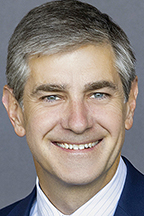
Dr. Greg Van Patten
“This growth has presented a number of different challenges, but it’s also presented opportunities,” said Van Patten, chair of the Chemistry Department for nine years before moving into his new role July 1.
“Some of the challenges we’ve faced (is) accommodating all of these students,” Van Patten added. “We have a certain number of planes, we have an air field at Murfreesboro (Airport) that has a certain capacity.
“We’re also interested in investing in this program. It’s a successful program. We want to support this growth and we have the resources to put toward it. And we want to do that in a creative way that gives us a long-term vision of where we want to see this program 10 years from now, 15 years from now, not where we want to see it a year or two from now.”
Prelis said there are several reasons for the growth trend.
“We’re seeing a large number of pilots, air traffic controllers, maintenance people, management as well that are approaching retirement age,” said Prelis, adding pilots are mandated by law to retire at 65. “On the flip side, we are seeing a lot more demand for travel. … Airlines are scrambling to add more aircraft, which invariably means we, as an institution, have to look at how to go about preparing and meeting the needs of the industry as well.”
Record increases
Van Patten notes a “healthy” 11.3% increase in pro pilot majors annually in the past 10 years. In pro pilot and other concentrations, a variety of job offers await graduates.
With Van Patten noting “modest growth” from 2011-17, records have continued to fall every autumn for the past six years — even with the challenges of the coronavirus pandemic for the past 18 months and counting. Aerospace’s overall student population (1,238 undergraduate and 36 graduate students) includes nearly 900 pro pilot majors. It is a stark contrast to fall 2016 when the 722 aerospace student population included 370 pro pilot majors.
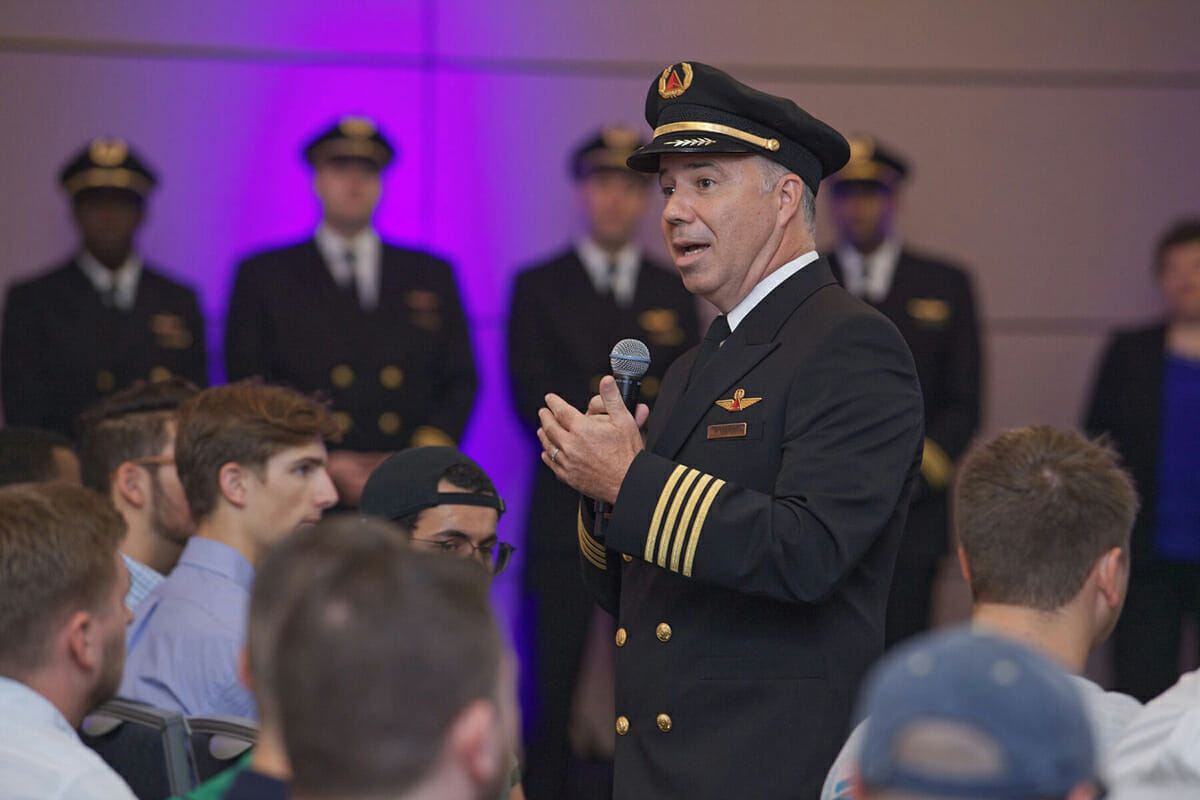
With MTSU students in the audience, Delta Airlines Capt. Patrick Burns gives a quick overview of the airline’s Propel program that could land MTSU students jobs in the future. The launch took place in late August 2018 in the Student Union Ballroom. (MTSU file photo by Andy Heidt)
In late August 2018, MTSU and Delta Airlines partnered in a new fast-track initiative, launching the Delta Propel Pilot Career Path Program. MTSU is one of eight universities selected by Delta to identify and mentor the next generation of pilots because of retirements. The airline looks to hire employees in mechanical, management/leadership, information technology, engineering, meteorology and other fields.
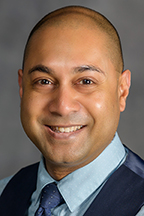
Dr. Chaminda Prelis
Prelis, barely one month into the job after being department chair at the University of Dubuque in Iowa and formerly with Northwest and Delta Airlines, said “one of the things faculty is focused on is making sure we are preparing students for the future, not what is needed right now … what kind of skills and what kind of knowledge will they need five, 10, 15 years from now, not just for their first jobs, but for their jobs after that as well.”
They are listening to the industry.
“What are experts telling us we will be facing in 10 or 15 years? Things like artificial intelligence, more automation. … How do we prepare our students to be successful and be able to interact in such a world?” Prelis said.
The master’s degree program features concentrations in aviation education, aviation management and aviation safety and security management, preparing graduates for a career in specific areas of the aviation industry.
— Randy Weiler (Randy.Weiler@mtsu.edu)
Here are the numbers from Fall 2016 through Fall 2021*:
| Term | Total # of Aerospace Students | Total # of Pro Pilot Students |
| Fall 2016 | 722 | 370 |
| Fall 2017 | 761 | 394 |
| Fall 2018 | 847 | 497 |
| Fall 2019 | 1035 | 700 |
| Fall 2020 | 1215 | 856 |
| Fall 2021 | 1238 | 895 |
* — Information provided by MTSU Aerospace Department
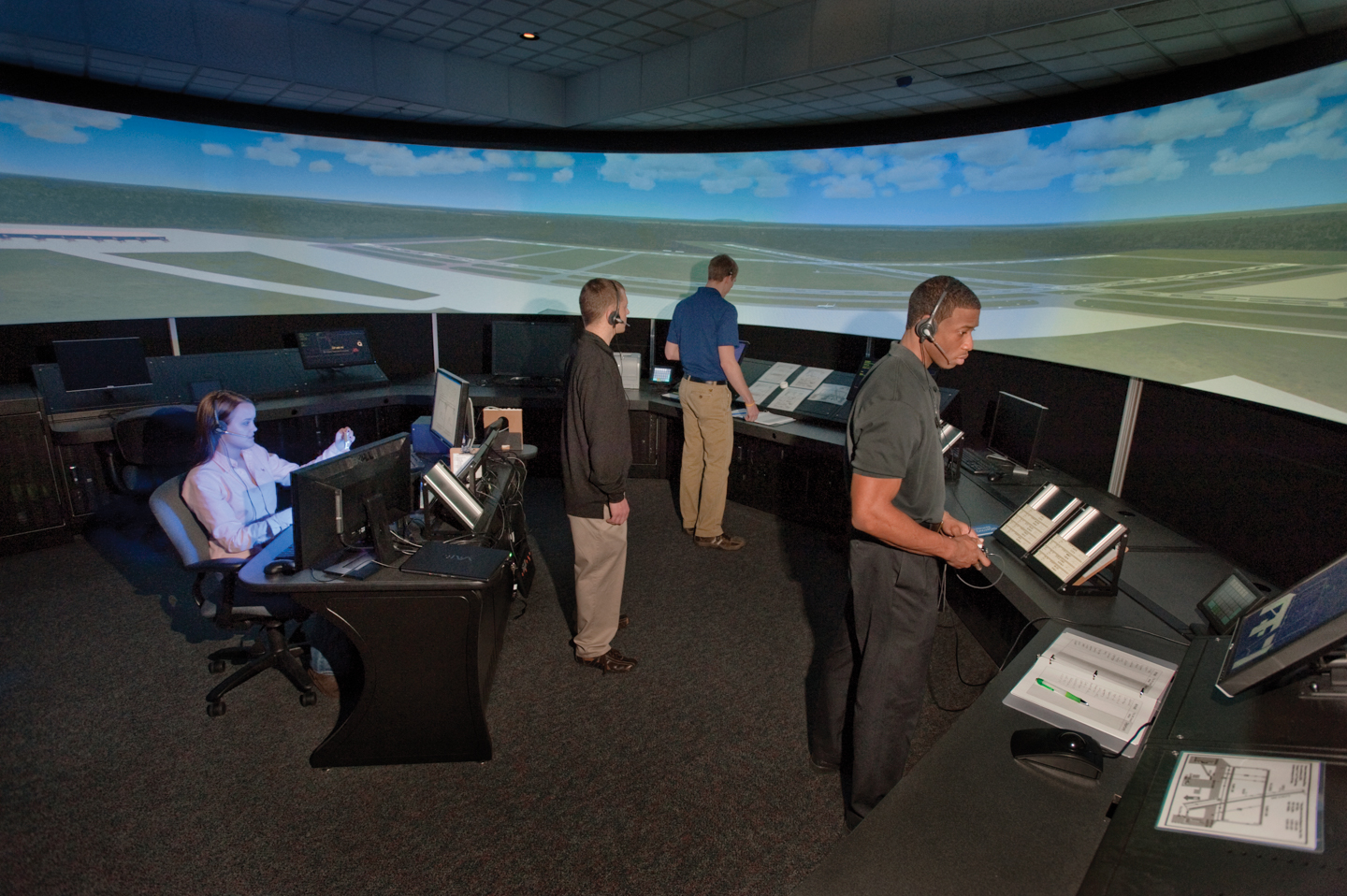
The MTSU Aerospace Department’s air traffic control tower simulator lab in the Business and Aerospace Building quickly became a favorite teaching tool for students and visitors..

COMMENTS ARE OFF THIS POST